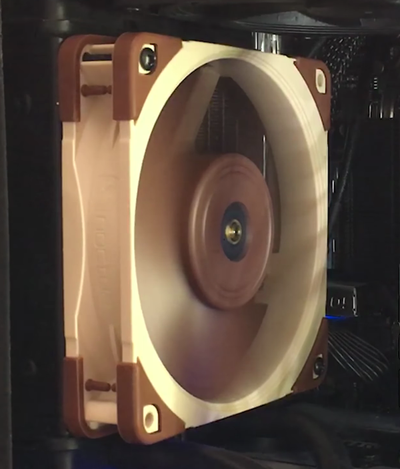
My thoughts on using the Noctua NF-P12 redux-1700 PWM High Performance Cooling Fan (2024)
My thoughts on cooling efficiency, versatility, installation, and Noctua NF-P12 redux fan’s value for pc enthusiasts.
Introduction
I recently upgraded my computer's cooling system with the Noctua NF-P12 redux fan. As someone who requires a quiet workspace and efficient cooling for my computer, selecting the right fan was essential. In the past, I have utilized diverse fans, and I wanted to assess this one's performance in regards to noise and airflow.
Some photos (click to enlarge)
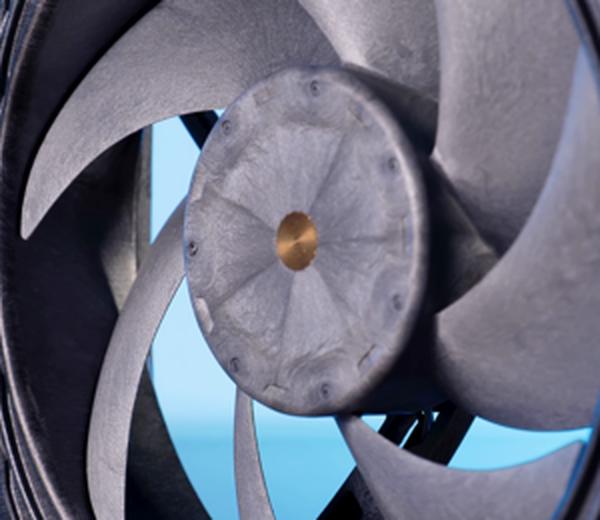
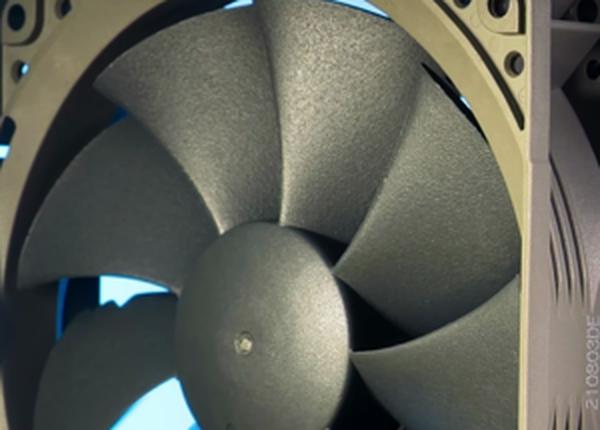
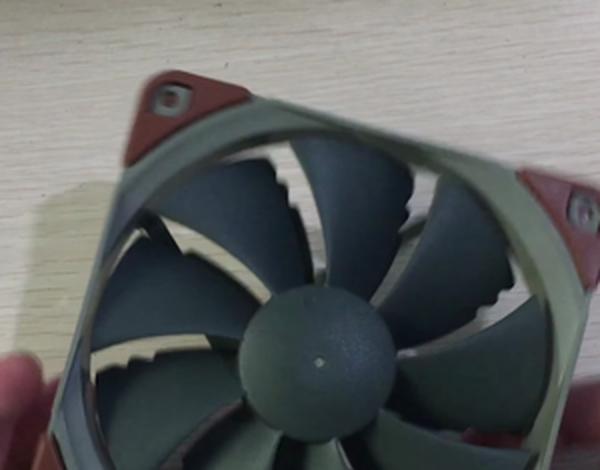
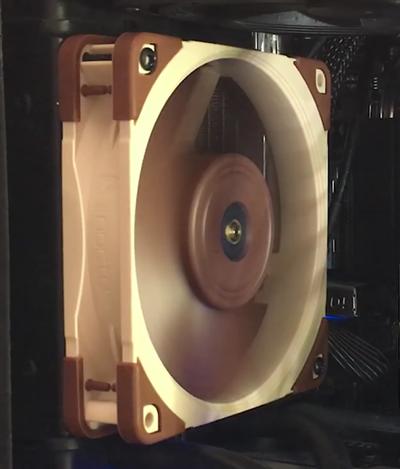
Specs of the Noctua NF-P12 redux-1700 PWM Fan
- Release Year
- Air Flow Capacity
- Brand
- Compatible Devices
- Material
- Maximum Rotational Speed
- Noise Level
- Power Connector Type
- Product Dimensions
- Voltage
Prices
Performance and Quietness

When I first considered the Noctua NF-P12 redux, performance and quietness were my paramount concerns. I'm one of those enthusiasts who relish a silent working environment, yet I can't compromise on the cooling efficiency needed for my high-performance rig.
Pros:
Excellent airflow and static pressure balance.
Nearly silent operation at low-to-mid RPMs.
Consistently high-quality build and materials.
Long lifespan with >150,000 h MTTF.
Cons:
At maximum RPM, the noise level is noticeable.
Lacks the rubber anti-vibration pads found in some other Noctua models.
From my experience with the NF-P12 redux, it holds up the reputation of Noctua's range of premium fans. It pushes a considerable amount of air through my case and over my heat sinks, manifesting in superior heat dissipation. The pressure-optimised blade design is evidently crafted with precision, a testament to why it's so effective for both high-impedance applications like radiators and general case ventilation.
Operating the fan at a reduced RPM through PWM control gave me a sweet spot of performance without much noise. I must point out that while the 1700 RPM maximum does move a lot of air, it can get audibly louder. This isn't a deal-breaker, as tweaking the fan curve in the BIOS allows for near-silent operation under lower loads, and that's the setting my computer spends most of its time in.
The durability is another point of confidence. With a MTTF of over 150,000 hours, it's reassuring to know that this fan is a long-term investment for my system. However, I did miss the anti-vibration pads that I've seen with other Noctua models—they're essential for dampening any potential for noise, and their absence is slightly disappointing.
Despite not being enclosed in flashy RGB lighting or having a striking aesthetic design, the grey colour scheme of the redux series is pleasantly understated and can seamlessly blend into most build designs. To me, it's an indicator that this fan means business and prioritises function over form.
In terms of noise levels, Noctua's claim of max. 25.1 dB(A) seems accurate at lower speeds, and only when I push my system do I start to hear anything from the fan—and even then, it's more of a whisper than a howl.
Ultimately, the NF-P12 redux has struck an impressive balance between maintaining competitive performance and doing so with minimal noise. Its few cons are easily overshadowed by the overall benefit it has brought to my cooling solution and, by extension, to my computing experience.
Versatility and Aesthetics

When evaluating the Noctua NF-P12 redux cooling fan from a standpoint of versatility and aesthetics, a few points immediately stand out:
Easily integrates with various setups: This fan's pressure-optimised blade design makes it suitable for diverse cooling needs, including air-based CPU coolers, radiators, and general case ventilation.
Minimalistic design: The redux line sports a sleek, two-tone look that's understated yet appealing to those who favor a less flashy rig.
Optional accessories: Although minimal in its unboxing state, the versatility is expanded with accessories like anti-vibration mounts and extension cables.
Lacks the 'bling': It's worth noting that for users looking for RGB lighting, this fan won't satisfy that particular aesthetic craving.
Within my own rig, I've often oscillated between prioritising performance and appreciating the visual appeal of the components. The NF-P12 redux strikes a reasonable balance for an enthusiast like me, offering Noctua's reputable functionality without the characteristic brown and tan color scheme that stands out a bit too much for my taste. The streamlined gray design aligns better with most build themes and adds a touch of sophistication without impeding the fan's primary function.
From a practical standpoint, Noctua's choice to focus on performance over flashy feature sets is admirable, yet it may deter some consumers. While the premium material feel of the fan instils confidence in its durability, the absence of RGB elements can be a drawback in a market where aesthetics can be as crucial as performance.
It's also significant that while the fan operates efficiently and moves a considerable amount of air, those used to the total silence of some higher-priced Noctua models may find the redux edition to emit a discernible hum at lower speeds. This isn't a deal-breaker, but worth noting for users who are particularly sensitive to sound.
Furthermore, for improved noise dampening, the lack of anti-vibration pads—which are usually standard with other Noctua fans—feels like an oversight. Although they can be purchased separately, the additional cost and effort could be a minor inconvenience.
In wrapping up thoughts on its versatility and aesthetics, while the NF-P12 redux may not have the bells and whistles of its RGB rivals, its strong performance, coupled with a smart, understated design, fill a specific niche in the market. It's the fan of choice for those of us who prefer our systems to whisper rather than shout, and for whom elegance comes from simplicity rather than a light show. The redux edition nicely dovetails efficiency with a neutral aesthetic, without unwarranted extras adding to the cost or complexity of our setups.
Installation and Compatibility

Installing the Noctua NF-P12 redux was a straightforward experience, seamlessly aligning with the various components in my PC build. While some fans can prove fiddly, here are the notable points of consideration I encountered with compatibility and installation:
Mounting System: The fan comes with standard screw mounting, making it compatible with a wide range of cases and heatsinks. However, it doesn't include the anti-vibration mounts found with some other Noctua models, which can lead to additional noise dampening.
Motherboard Headers: As this fan supports 4-pin PWM, it easily connects to my motherboard, allowing for dynamic speed control based on CPU temperature which is a huge plus.
Radiator Compatibility: I found the pressure-optimised blade design ideal for pairing with my water cooling radiator, providing the necessary air pressure for optimal heat dissipation.
Cable Length: The included cable was sufficiently long for my mid-tower case, but for larger cases, an extension cable might be necessary - worth noting if your build requires it.
From these observations, let me categorize the points that stood out:
Pros:
Broad compatibility with various PC cases and heatsink setups
PWM support for precise fan speed control
Optimal for use with both air and water cooling solutions
Cons:
Lack of anti-vibration mounts and accessories
Potential need for extension cables in larger cases
In terms of physical dimensions, the 120mm size fits snugly without any hassle inside my case, and the slim 25mm thickness meant I faced no issues with clearance. This is particularly important for builds with large CPU coolers or memory modules with tall heat spreaders.
The fan's material, fibre-glass reinforced PBT, feels robust in hand, and after months of use, it's shown no signs of wear or performance degradation, indicating a product well made for longevity.
Lastly, its 12V power requirement is standard and should pose no issues for modern power supplies. However, it's always wise to check the header availability on your motherboard to ensure you can take full advantage of the PWM control.
In summation, the Noctua NF-P12 redux offers hassle-free installation and a degree of compatibility that will meet the demands of most users seeking high-performance cooling without the need for splurging on additional accessories. Its versatility in different cooling setups is a testament to its thoughtful design, although the omission of vibration-damping accessories is a minor quibble in an otherwise stellar package.
Value and Recommendations

In evaluating the Noctua NF-P12 redux Cooling Fan, the value and overall performance have proven to be more than satisfactory from my perspective. In the world of PC cooling, having a dependable fan is crucial, and Noctua has delivered a product that balances cost with performance admirably.
Pros:
Cost-effective compared to other high-end fans
Maintains a high standard of quality and durability
Exceptional airflow and static pressure balance
Versatile in both case and radiator applications
Cons:
Lacks some premium features such as anti-vibration pads
Aesthetics might not suit all builds
Despite being quieter than most, might have a noticeable hum at lower RPMs
The affordability of the redux edition without compromising the expected Noctua quality is significant. It's not often you find a product that operates as effectively as its more expensive counterparts at nearly half the cost. This defies the conventional 'you get what you pay for', providing premium performance that doesn't break the bank.
Still, there are drawbacks. The lack of additional accessories like anti-vibration mounts is slightly disappointing, despite being understandable at this price point. For those sensitive to noise, the potential hum at lower RPMs could be a minor annoyance, though this is offset by how efficiently it moves air through my system. It's worth mentioning that setting up a proper fan curve in your BIOS could mitigate noise further.
Their design omits flashy RGB lighting, which, while not essential, is a feature many seek in their custom builds for aesthetic synergy. Noctua, however, stays true to its brand identity, focusing on substance over style – the redux fan might not win any beauty contests, but its performance is undeniably attractive.
Overall, I am inclined to recommend the Noctua NF-P12 redux Cooling Fan to both enthusiasts and regular users alike. Its quiet operation under load, excellent airflow, and pressure balance make it an ideal choice for a range of PC builds. Especially for those who prioritize long-term reliability and effectiveness over frills, this fan offers immense value.
For individuals seeking to maintain a particular visual theme, they might find these fans lacking; however, Noctua offers different color options and accessories that could help in this regard. The trade-off between aesthetics and utility is a common dilemma, but in the case of the NF-P12 redux, I believe the utility wins out for most practical scenarios.
In conclusion, the Noctua NF-P12 redux proves a stellar addition for those in need of high-quality, budget-friendly PC cooling solutions. Despite not hitting every single mark, its performance, reliability, and price make it a commendable option for a wide array of systems.
Comments (0)
Share